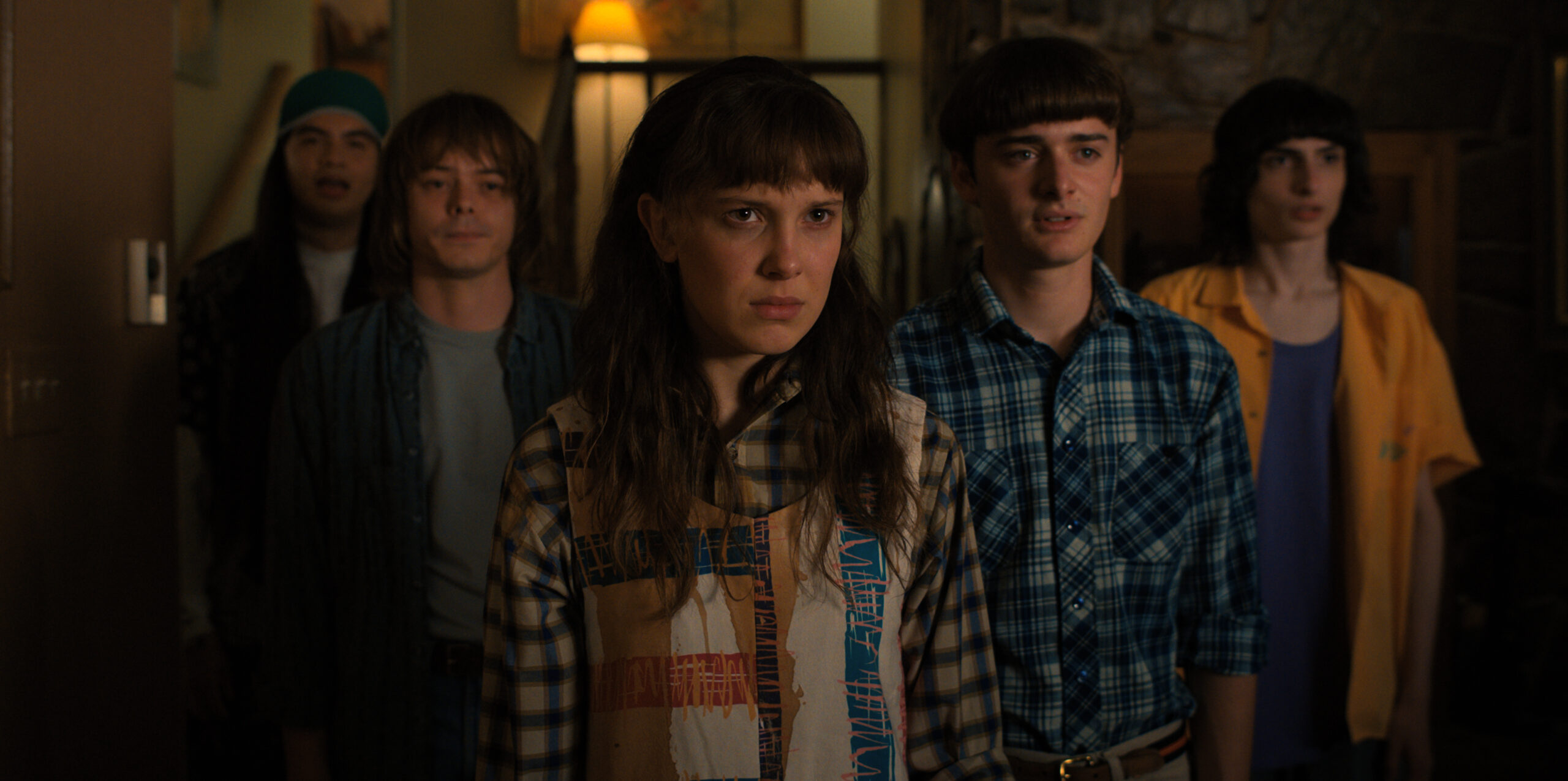It’s hard to put into words what makes Stranger Things so captivating. Maybe it’s that it’s about monsters, but also people – the balance is harder than it looks. Horror of any kind only works if you care about the characters, after all. And if Stranger Things does anything right, it presents us with a cast of characters that not only work well together but shine individually.
There’s The Party, the main group of kids of Mike, Eleven, Lucas, Dustin, Max, and Will. The older “kids” Steve, Nancy, Jonathan, and Robin. The new additions Eddie and Argyle, plus the younger but still awesome Erica. And the adults, particularly Joyce, Hopper, and Murray. That’s a lot of characters to invest in. And invest we do. It’s hard to resist the pull of these people, these relationships, this story.
This isn’t exactly surprising, considering the quality and popularity of the story, but it is kind of ironic if we consider how little representation the show has given us both in the adults and kids alike. Only one of the main kids – Lucas – is Black, and he and sister Erica are the only POC in the main cast for the first three seasons. Robin, who was introduced last season, is a member of the LGBTQ+ community. Argyle, who is introduced as Jonathan’s friend this season, is Latine. That’s about it when it comes to representation. And that we can name three is actually progress.

Season 4, Vol. 1 of Stranger Things does more than just introduce Argyle, though. It allows Nancy and Robin to bond, even while it keeps Eleven away from the group, which means no Eleven and Max quality time. It also makes Erica basically part of the group, something that not only makes sense but also is another step forward in a story that, so far, has been mostly focused on male, white perspectives. But all things considered, these are still tiny steps, and the show is running out of time to make any substantial changes.
It might seem like I’m arguing for representation for the sake of representation, which seems to be one of those things people decry as bad. But it’s more than that, (not to mention the notion of planning, writing, and casting a show with a cast that reflects the real world shouldn’t be a problem). I’m talking about making a show everyone can relate to, and also, about doing justice to Eleven’s story.
Because make no mistake, Stranger Things is about Eleven. And about her friends, yes. About the people she meets, the family she makes. But Season 4 Vol. 1 makes it clear who is at the center of all, whose story we’ve been following and will continue following. And though Season 4 has two female writers, it has no female directors, and no POC involved in either the writing or directing – which means those perspectives are still not being presented in the most authentic way possible. And that includes this season’s new characters and the girl at the center of the story.

It’s easy to love Stranger Things, white male gaze and all. Perhaps because we love it, it’s also easy to want more of it and from it. Characters that don’t just look different, but whose culture and idiosyncrasies are faithfully presented on screen as meaningful parts of the story. Female characters who flourish regardless of the expectations of the male gaze. Stranger Things is a great show despite its failings, and I will be here for the rest of the ride. I will enjoy it the way it is.
But I will still wish it could have been more. It’s hard not to. There’s good, there’s great and there’s life-changing entertainment. Stranger Things could have been the last kind, but it was content with just being great. Sad, but not really surprising.

